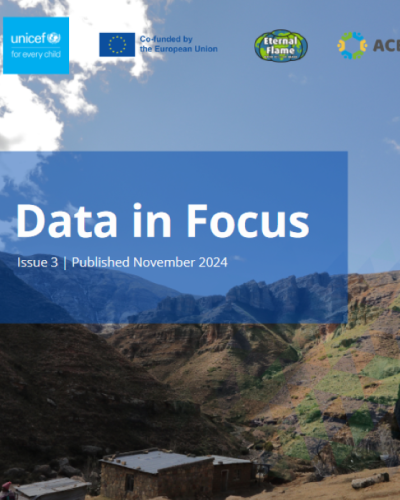Publication
Data in Focus: Poverty of Energy in Lesotho
08 November 2024

- Green-energy off-grid products and mini-grids are among the key innovations supporting developmental benefits associated with access to clean, affordable, renewable, and sustainable energy that is inclusive to the entire population, primarily rural areas.
- In Lesotho, access to electricity in the urban areas is at 80.6%, while it stands at 37.7% in the rural areas (2021). Housing deprivation contributes the most to the multidimensional poverty index particularly due to limited access to electricity. Access to grid and off-grid electricity, especially in the highlands and foothills, is key to improving children’s nutrition, health, and learning outcomes, as well as increasing connectivity.
- The Ntlafatsa Bana programme, implemented by UNICEF in support of the Lesotho Ministry of Gender, Youth and Social Development, with the European Union's contribution, includes a Cash Plus component to ensure that poor households can access essential services such as nutrition education, birth registration, water, and renewable energy.
- There has been a noticeable shift towards green energy providers who produce a variety of green-energy off-grid products and mini-grids available at a low cost. These providers can provide access to clean, affordable, renewable, and sustainable energy, especially in rural areas.
Published by
UNICEF









